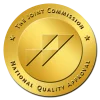Drug and alcohol addiction and mental health disorders often go hand-in-hand. When both are present, this is called dual diagnosis. Treatment for dual diagnosis should address both conditions simultaneously.
What Is Dual Diagnosis?
Dual diagnosis (also called co-occurring disorders) occurs when a person suffers from substance use disorder, such as addiction to drugs or alcohol, as well as a mental health disorder, such as depression, anxiety, or post-traumatic stress disorder (PTSD). In treatment for dual diagnosis, each disorder requires equal attention and care.
Many people who have a substance use disorder also have a mental health disorder. Either condition can occur first, and sometimes, one can lead to the other. Having co-occurring disorders like this is more common in people who have a serious mental health disorder as well as in teens, according to the National Library of Medicine’s MedlinePlus.
The Challenges of Dual Diagnosis
It’s not uncommon for a person to struggle with both mental health and substance use at the same time. The National Alliance on Mental Illness shares that 21 people in the US have a substance use disorder, and 8 million of them also have a mental health disorder.
Sometimes a person may use substances to manage the symptoms of their underlying mental health disorder. For example, stimulants may help to fight the symptoms of depression. This is called self-medicating, and while it may work for a short period of time, it typically will not offer long-term improvement and, worse, will likely lead to addiction.
The challenge is that if you treat just one of these conditions without the other, you are likely setting yourself up for relapse. Therefore, it is critical to get treatment for both conditions at the same time so that you can build a strong foundation for recovery.
How Dual Diagnosis Is Treated
The good news is that you can get treatment for dual diagnosis that is highly effective and creates a strong path forward. You don’t have to continue to suffer from these symptoms or complications. Our goal is always to treat both conditions at the same time using a number of strategies based on your specific health and mental health needs. These may include:
Behavioral therapy
During behavioral therapy, we work very closely with our clients to provide hands-on support for their needs. This type of therapy may include inpatient treatment and outpatient care over time. You will learn more about why you feel the way you do, how you can manage stress, and how to change your thinking process to avoid substance use.
Behavioral therapy is one of the most important tools you have for fighting back against dual diagnosis because it gives you very specific steps to take to deal with the complications you’re facing. You learn what to do, how to do it, and how to get help.
Medications
Most people with mental health disorders can benefit from the use of medications. Medications typically don’t cure their condition, but they can help the brain work in a way that’s more effective. Medications can also help with controlling symptoms of mental health disorders that may impact your ability to process information in a healthy way.
Support groups
You’ll also find help in support groups, both in professional dual diagnosis treatment programs like ours at Willow Creek Behavioral Health and within your local community. You’ll learn how other people deal with the complications they face and develop a strong feeling of belonging.
Support groups are a component of your long-term care plan for dual diagnosis. And you always have our counselors and team available to help you as well. We provide:
- A comprehensive evaluation to better understand where you are right now
- A structured and therapeutic environment where you can feel supported and at ease
- Individual care plans centered around your specific needs, so you’re always working toward your goals
- Individual and group therapy sessions
- Recreational therapy programs
Building a Stronger Future Through Dual Diagnosis
There is no cure for addiction, but there are strategies that can give you your life back. When you work with our team, you build a strong foundation for future healing. We provide you with strategies to follow to help you advocate for your mental health and encourage you to engage in activities that are meaningful to you.
Learn how our team can help you. Reach out to Willow Creek Behavioral Health today for a consultation. Our behavioral health treatment center in Green Bay, WI, is available to guide you.







